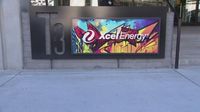Xcel Energy, the Minneapolis-based utility giant, made headlines this week after announcing a $640 million settlement to resolve all litigation related to the devastating Marshall Fire that swept through Colorado’s Front Range suburbs in December 2021. The settlement, revealed on September 24, 2025, comes as a significant moment for both the company and the thousands of people whose lives were upended by the blaze, which killed two people and destroyed over 1,000 homes and businesses.
According to Investing.com, Xcel Energy’s shares surged 6.5% following the announcement, capping off a week in which the stock climbed nearly 8% and approached its 52-week high of $78.12. The settlement figure, which includes roughly $350 million in insurance coverage, landed far below the estimated $2 billion liability that some investors had anticipated. This surprise fueled optimism on Wall Street, with KeyBanc maintaining its Overweight rating and $79 price target, BMO Capital and Wolfe Research raising their targets to $84, and Goldman Sachs reiterating its Buy rating with a target of $87.
The news broke just one day before jury selection was set to begin in what would have been a two-month trial combining lawsuits from hundreds of homeowners, insurers, and local governments. Court documents confirmed that the trial was canceled after the settlement was reached. In a statement, Xcel CEO Bob Frenzel acknowledged the pain the fire had caused and said, "We recognize that the fire and its aftermath have been difficult and painful for many, and we hope that our and the telecom defendants’ contributions in today’s settlement can bring some closure for the community."
The Marshall Fire, which ignited on December 30, 2021, quickly became Colorado’s most destructive wildfire on record. It was fueled by a combination of a sparking Xcel power line and embers from a smoldering scrap-wood fire on a nearby property used by a Christian communal group, according to investigators. High winds—gusting up to 100 mph—fanned the flames, and months of drought set the stage for an inferno that ultimately caused $2 billion in damages. Among the victims were a 69-year-old man and a 91-year-old woman, the latter last seen trying to rescue her dogs from her home in Superior.
Despite the settlement, Xcel Energy has not admitted any fault. The company maintains that its equipment did not cause or contribute to the fire, a position it has held since the beginning of the litigation. The lawsuits, brought by around 4,000 plaintiffs, ranged from homeowners who lost everything to insurance companies and local governments like fire districts. Most of the victims plan to accept confidential payouts determined by mediators, with lawyer James Avery, who represents many of them, stating, "There is a sense of relief and hope for an ending to this tragic disaster that they continue to struggle with as they rebuild their homes and lives." However, some businesses, including a construction company that lost millions in equipment and contracts, may opt out of the agreement to pursue their own claims.
For Xcel Energy, the financial impact of the settlement appears manageable. The company reported $927 million in earnings for the first half of 2025 and holds approximately $1.5 billion in cash as of the second quarter, according to Investing.com. This means the $290 million to be paid from company profits (the remainder after insurance) will not require new debt or equity financing. Xcel has also maintained an impressive streak of 54 consecutive years of dividend payments, a fact not lost on analysts and investors alike.
Still, the question of who ultimately bears the cost of such a massive payout lingers. Xcel has repeatedly stated that customers will not be directly charged for the settlement. In a statement, the company said, "none from its customers." Yet, some industry experts remain skeptical. Ron Lehr, former chairman of the Colorado Public Utilities Commission (PUC), warned, "Will the customers end up bearing some costs? I think they will. There's only one group that pays the costs of utility enterprise when the costs go up, and this drives up the costs of what the utility has to pay." Lehr pointed out that large settlements can lead to increased operational costs, such as higher interest rates on loans or higher returns demanded by investors due to perceived risk.
Regulatory safeguards are in place to protect ratepayers from unauthorized cost pass-throughs. Rebecca White, director of the Colorado PUC, emphasized, "There's nothing that would get past the Public Utilities Commission on this matter." She described the PUC’s staff as a team of accountants, economists, engineers, and finance experts who scrutinize every detail of rate case filings. "They are accountants and economists and engineers and experts in utility finance, and they take every page of a filing like that and scrutinize it," White explained. Cindy Schonhaut, director of the Office of Utility Consumer Advocate (UCA), echoed this vigilance: "We're hyper vigilant in looking for all, every and any attempt to increase rates and to investigate and scrutinize that very closely."
When pressed on whether Xcel might try to recover the $290 million in future rate cases, a company spokeswoman reiterated that most of the settlement would be covered by insurance and the rest from earnings, without a direct charge to customers. However, she stopped short of a categorical denial that future rate cases could be influenced by the settlement’s financial ripple effects.
The Marshall Fire settlement also fits into a broader pattern of legal and financial challenges faced by utilities across the western United States as climate change intensifies wildfire risk. Utilities in California and Oregon have confronted similar lawsuits. For instance, Oregon’s PacifiCorp settled claims over the Archie Creek Fire for $299 million with 463 plaintiffs, while Southern California Edison faces federal lawsuits over fires that destroyed thousands of structures and resulted in numerous deaths. In response, utilities have spent billions on insurance and equipment upgrades, hoping to reduce the risk of sparking future blazes.
For now, the settlement removes what analysts considered the largest overhang on Xcel Energy’s stock. As Investing.com noted, the company’s shares now trade at a slight premium to large-cap peers, a reversal from the discount observed before the announcement. However, some, like Seeking Alpha, urge caution, recommending that investors hold the stock for now despite the major hurdle being cleared.
As the dust settles, the community affected by the Marshall Fire can look toward rebuilding with a measure of closure, even as questions about utility liability and climate-driven risks remain front and center for regulators, investors, and the public alike.


